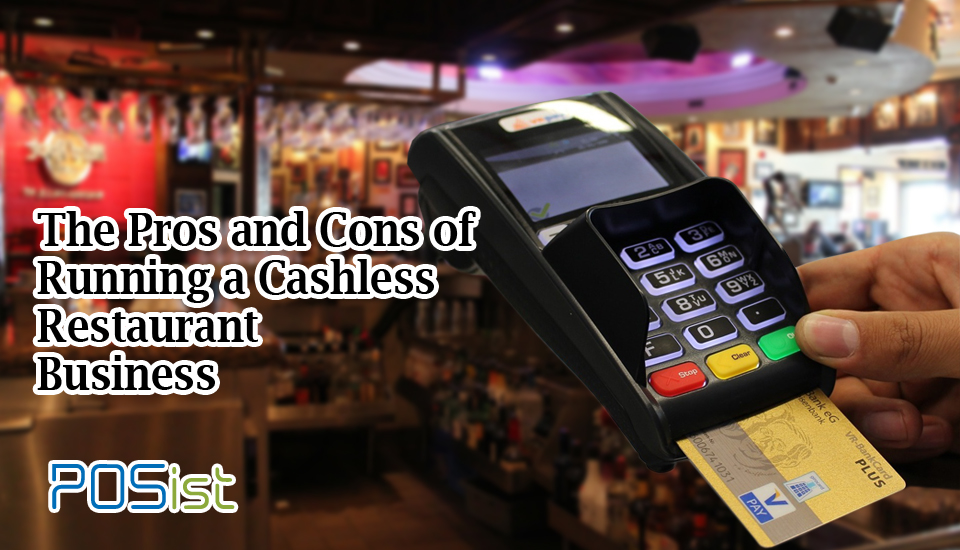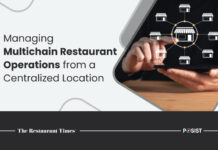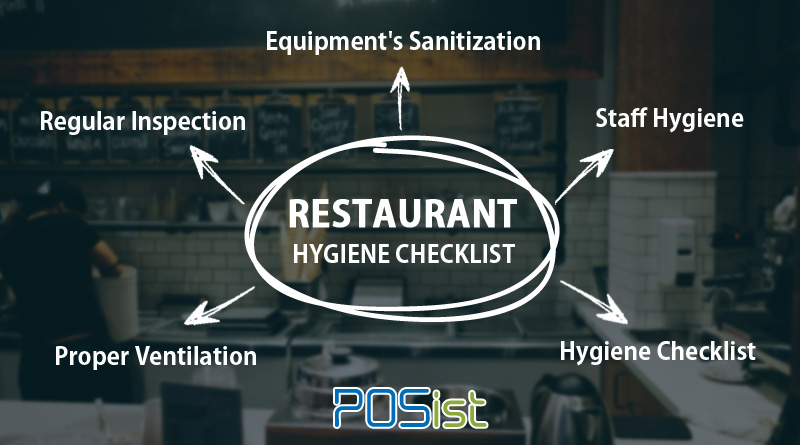The Restaurant industry is one of the fastest-growing industries of India and is projected to grow at a rate of 11 percent. Eventually, the Restaurant Industry is, and will be greatly affected by India’s transition to a cashless or digital economy. While the overall impact is likely to be favorable to the restaurant business, everything comes with its share of challenges and setbacks. We had previously discussed how demonetization would impact your restaurant business. In such times, running a cashless restaurant business seems to be a financially viable option for the restaurant space. More and more restaurants are accepting cashless payments in the restaurant. Cashless payments trend in the restaurant is fast catching up. But before we jump to any conclusions regarding the viability of running cashless restaurants, it will be good to look at the disadvantages and advantages of cashless transactions.
The Pros And Cons Of Running A Cashless Restaurant Business
In this article, we will discuss the good and the bad effects that this cashless economy could have in store for the restaurant industry. No move comes without some setbacks and some gains. And the same is with accepting cashless payments in the restaurant business. We will explore both in this article in regards to the cashless trend in the restaurant space.
Pros Of A Cashless Restaurant Business
Jumping on the cashless trend wagon and running a cashless restaurant business has its benefits. Read on to find out!
1. A Surge In Online Orders
As liquidity falls, a lot of people are likely to switch to online ordering in and takeaways. This is going to be even beneficial to the existing as well as aspiring players in the delivery sector. Thus, it is important that you integrate online ordering in your POS terminal to run a cashless restaurant business. Following the implications of the cashless trend and other factors impacting the industry, the size of the online foodservice market in India is already growing at the rate of 15% per quarter.
2. Operational Ease
The cashless trend in restaurants is a blessing in disguise since you do not have to handle cash. Therefore, cashless payments trend in the restaurant industry is catching up. Digital transactions come with ease, security, and reliability. They are well registered, and there is no way discrepancies can be made. You will no longer have to fret and fume over inaccurate reconciliations.
3. Convenience in Logistics
The restaurant industry has a highly complex logistics and supplies chain maneuver. While logistics will continue to exist in the industry, moving towards cashless restaurants can ease the cumbersome cash-related tasks. You would not have to waste a lot of time in handling and rendering the exact loose cash to your logistics partners, or dread the delayed or inaccurate payments, nor are their chances for a delay due to non-payment because of cheque bounce, bank holidays, etc.
Whatever the transactions, they will be instant, and you will get notified of the exact amount involved in the transaction.
4. A Drop In Internal Thefts
Employee thefts, inventory thefts, pilferage, and discrepancies in the actual bill are a dark truth of the restaurant business. In the case of operations through cash, it is difficult to track the actual transactions and validate their authenticity. It is a tedious task to manage inventory transactions and ensure that all your employees, especially cashiers and managers are not leveraging careless customers who do not ask for the bill and take unfair advantage by not generating proper bills or counterfeiting bills.
Digital transactions, in this case, can help you counter internal thefts of nearly all kinds.
5. Improved Customer Experience
Imagine going to a restaurant, famished after a long day and finding a long queue at the cash counter! We are sure you too must have faced a similar situation at least once in your lifetime and at times, it can strip us off of all our patients. Now imagine your customers dropping out to other restaurants simply because of a long cash payment queue! A cashless restaurant, on the other hand, could wave off long delays and avoid the horror. Since digital transactions are done by customers themselves and do not have to rely on your restaurant employees, it saves significant time for your customers and employees as well.
6. Efficient CRM Usage
Cashless restaurants can enable you to fully use your CRM software. Once you have a complete record of your customers’ transactions, you will eventually capture data including their regular choice of food, eating patterns, favorite meals and drinks, ordering patterns, etc. Within these details, lie a plethora of opportunities to retain and attract customers by extending various loyalty programs to them. Once you have relevant data captured pertaining to their preferences, you will have a better knowledge of what it would take to keep your customers satisfied, and happy customers are one of the biggest assets of your restaurant.
Cons Of Running A Cashless Restaurant Business
Despite having many benefits, the cashless trend in the restaurant business has its cons too.
1. Blow To The Unorganized Sector
The unorganized sector, such as the small food vendors, food trucks, accounts for more than 50 percent of the restaurant industry and credits most of its transactions to cash. The unorganized sector provides meals at nominal charges, and the cost for a meal for two is generally Rs 500 or under. Hence, small food outlets that do not have provisions for online or digital payments are likely to be negatively impacted. However, even outlets in the unorganized sector can overcome this by switching to an integrated Point of Sale software.
2. Higher Cost
Everything said we all know that ‘profit’ is the underlying motive for EVERY business, especially the restaurant business where profit margins are generally considered unsatisfactory with a par to other business sectors. While all other forms of digital payments are beneficial to your business, credit cards require a ‘processing fee’ that you will have to pay each time a transaction is made via a credit card. Digital wallets also charge some percentage of the total amount per transaction. This increases your costs which if you pass on to the customer may cause you to lose out on them. Cash transactions come with no such liability or extra cost.
3. Masses Still Prefer Cash
Although there are a lot of customers in the restaurant business who pay using digital modes, there are significant numbers of customers who still prefer cash. This consists of people who either do not know how to manage digital payments or those who chose to pay cash simply out of wish. There are a lot of people who still do not have bank accounts including school-going children under the age of 18, hence, no credit or debit cards. While it is not a major concern since if people do wish to eat at your food outlet, they will cooperate and shift to the preferred mode of payment if required; it can make you lose out on potential customers who may not dine at your restaurant because of payment restrictions. If your target audience is middle school and high school kids, it makes no sense to go cashless at all.
4. Erroneous Transactions
After demonetization, the percentage of erroneous transactions via plastic payments has risen from 8 percent to 23 percent, due to first time users, probably those in the semi-urban locations. The possibility of insecure transactions is also likely to increase. Thus, it is important that you choose a safe and secure payment gateway.
While a few cons of running a cashless restaurant exist, most of these factors may stand redundant as they can be fixed. The only grave issue here is high costs involved with credit card processing fee which can be countered by discouraging credit card payments and promoting other modes of digital payments, especially digital wallets which clearly seem like an easier alternative to credit card use.
For instance, after demonetization, ace players of the F&B Industry, like McDonald’s, Haldiram’s, Cafe Coffee Day, Barista and Domino’s Pizza amongst others have invested in partnerships with digital wallets like Freecharge and MobiKwik, which have so far, been highly lucrative to them as well as digital wallet companies.
Incorporating digital payment modes while also allowing transactions via cash seems to be the most suitable solution during this period of a cash crunch that has struck the entire country.

















